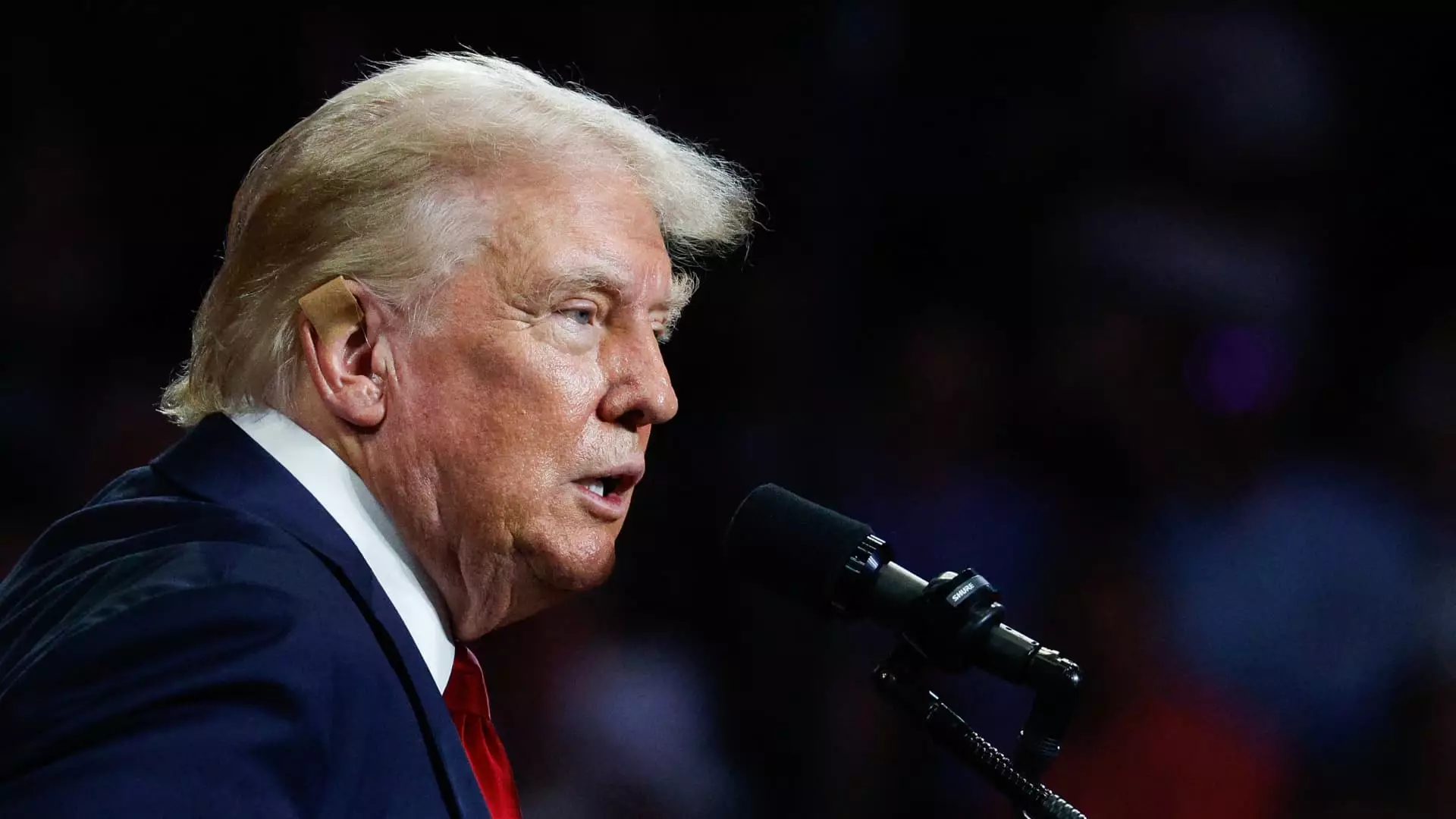Former President Donald Trump made headlines during the biggest bitcoin conference of the year when he revealed his stance on bitcoin, but his proposal fell short of the revolutionary ideas some crypto enthusiasts had anticipated. Instead of promising to establish an official U.S. bitcoin strategic reserve currency, Trump simply vowed to maintain the current level of bitcoin holdings that the U.S. government has acquired through seizing assets from financial criminals.
While Trump’s pledge to maintain the U.S. bitcoin holdings may be seen as a step in the right direction by some, it didn’t match the more sweeping pitch put forth by third-party presidential candidate Robert F. Kennedy Jr. Kennedy, in his own speech at the Bitcoin Conference, promised to establish a 4 million bitcoin strategic reserve to align with the country’s current gold reserves. His plan involved authorizing the U.S. government to purchase a significant amount of bitcoin daily, a move that would have substantial implications for how the cryptocurrency is regulated and perceived.
Although an executive order from the president may not be enough to create a U.S. bitcoin reserve, some lawmakers have already begun the process of introducing legislation to support such an initiative. Senator Lummis of Wyoming announced her intention to propose new legislation that would see the U.S. amassing 1 million bitcoin over five years, with the goal of reducing national debt and fortifying the dollar against inflation. However, passing this legislation would likely require a full sweep by Republicans in the upcoming elections, introducing potential political obstacles to the proposal.
Establishing a national bitcoin reserve would not only enhance the legitimacy of the digital currency but also have significant financial implications. The U.S. government’s existing bitcoin holdings, acquired from criminal operations, could serve as the foundation for the reserve, with further purchases funded by taxpayers. While the initiative aims to reduce the federal deficit in the long run, the immediate impact could lead to a surge in the price of bitcoin, given the increased demand and scarcity resulting from countries worldwide following suit.
The potential establishment of a U.S. bitcoin strategic reserve has sparked debates within the crypto community, with some viewing it as a major milestone for the digital asset. The proposed reserve would not only solidify bitcoin’s position as a viable asset class but also could prompt other nations to build their reserves, further driving up the price of bitcoin. Despite the initial skepticism toward Trump’s proposal, the long-term implications of a national bitcoin reserve could have far-reaching effects on the cryptocurrency market and the broader financial landscape.
President Trump’s approach to maintaining the U.S. government’s bitcoin holdings, while not as ambitious as some had hoped, sets the stage for a broader debate around the role of cryptocurrencies in national financial strategies. The proposal, along with Senator Lummis’ legislative efforts, represents a significant step toward integrating bitcoin into the mainstream financial system and acknowledging its growing relevance in the global economy. The road to establishing a U.S. bitcoin strategic reserve may be fraught with legal challenges and political hurdles, but the potential benefits for the digital currency and the broader financial ecosystem are undeniable.


Leave a Reply